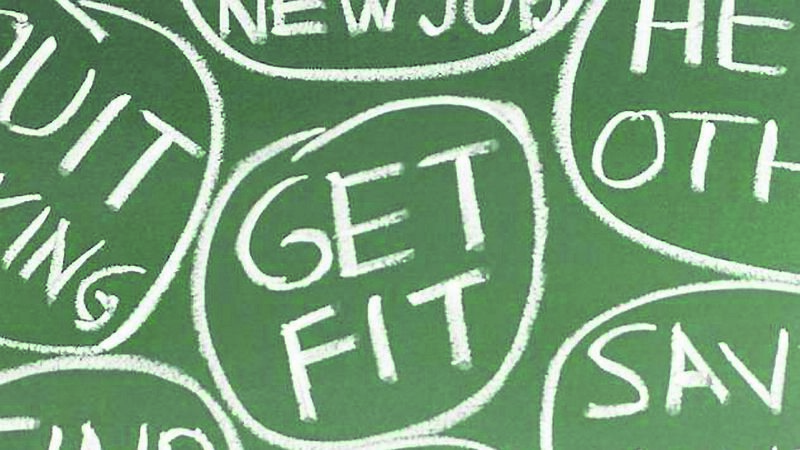Would you really like to know how long you have left to live?

It’s the time of year for resolutions - and that’s surely no bad thing, says Colette Sheridan. iStock, posed by model
We are going to lose weight (but that campaign doesn’t actually start until January 1) so that we can feel better about ourselves.
But for how long will you actually stick to your restrictive diet and visits to the gym?
Past experience should shut us up about becoming a healthier, more attractive person. But that has never dampened our (short-lived) enthusiasm for just generally wanting to become better, in so many ways.
However, awareness that we need to improve as human beings and get our act together is no bad thing. It keeps us a little bit in check and, while it may generate guilt, that’s no harm.
I mean, what’s the alternative? Guzzling and gorging? Knocking back alcohol? That’s a losing game.
The first recorded people to make New Year’s resolutions were the ancient Babylonians, some 4,000 years ago in what is today Iraq.
Mind you, Babylon is considered to mirror the world with all its carnality and weakness. It’s the degenerate social order. Maybe that’s why Babylonians tried every year to be better.
They used to hold recorded celebrations in honour of the New Year. However, for Babylonians, the year began in mid-March when the crops were being planted.
New Year resolutions for the Babylonians were intertwined with religion, mythology, power and socio-economic values. These folk are said to have initiated the tradition of a 12-day New Year festival called Akitu.
Statues of the deities were paraded through the city streets and rites were enacted to symbolise victory over the forces of chaos.
During this festival, people planted crops, pledged their allegiance to the reigning king, or crowned a new king and made promises to repay debts in the year ahead.
They believed that if they fulfilled their New Year promises, then the Gods would look favourably upon them in the New Year.
In our brave new world, which is quite scary in many ways, scientists have developed an algorithm that uses the story of a person’s life to predict how they will live and when they will die.
This model, called life2vec, is accurate about 78% of the time. Would you want to know how many more years you have left?
Maybe if you knew, you’d give up the job and go travelling so as to enjoy the remaining little bit of life left for you.
Heck, you could run up a credit card bill if your deadline is really imminent. But wouldn’t it be rather frightening to see the clock running out? It would surely make a person despondent as they neared the end. Far better to live each day as if it’s your last - but with no idea what date that is.
This model was built by scientists in Denmark and the U.S who trained a machine-learning algorithm on a huge pool of Danish data. It was fed with information on more than six million people including income, profession, place of residence, injuries and pregnancy history. (To protect the personal information of the people whose data was used, it is not available to the general public - or insurance companies and the like.)
What is linked to longer life includes higher income or being in a leadership role. That’s me out of the picture for a long life!
But really, I’d rather not know when the grim reaper is going to visit. Call it being in denial, but we need a bit of mystery to keep going, year in, year out. We are fuelled by a certain amount of hope.
Instead of reading about the likelihood of a tornado in Cork, I’ll spend more time reading books, but not dystopian ones - apart from Paul Lynch’s Booker Prize-winning novel which sees Ireland in the grip of totalitarianism.
The future can’t be totally predicted. If it could be, a lot of us simply wouldn’t get out of the bed in the morning.







 App?
App?


